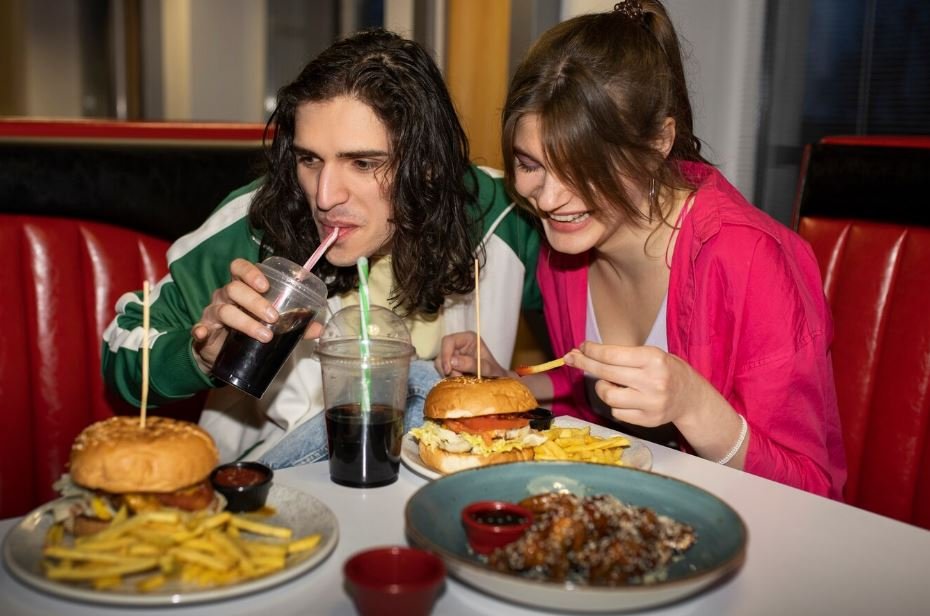
Glasgow’s culinary scene has quietly changed over the past year, driven by incredibly creative, neighborhood-driven deals rather than glitzy Michelin stars or viral fine-dining showstoppers. While other cities struggle with growing menu costs and declining lunch crowds, Glasgow has paved the way for a future where flavor and affordability coexist. In many respects, the approach is both remarkably inventive and surprisingly inexpensive.
Customers can now get 50% off meals just by booking the first seat of the day thanks to platforms like First Table. For many, this has become a daily routine: espresso at The Wild Olive Tree, a calm café inside a church, after an early lunch at Osteria, where creamy pesto pasta arrives with edible flowers and a prosecco toast. These experiences are frequently less than £15 per person and are remarkably similar to fine dining.
Key Highlights – Glasgow’s Great Food Deals
| Feature | Description |
|---|---|
| Location | Glasgow, Scotland |
| Focus | Affordable dining options and discount-driven restaurant culture |
| Notable Platforms | First Table, Groupon, Itison, TheFork, Wowcher, 5pm.co.uk |
| Average Discount Range | 20% – 80% off meals |
| Popular Deal Types | 2-for-1 mains, 50% off bills, set menu with drinks, voucher bundles |
| Featured Local Spots | MacTassos, Mini Grill, 29 States, The Wild Olive Tree, Osteria |
| Celebrity Hotspots | Sloans, Saint Judes, Moskito, Glasgow Grosvenor Hotel |
| Influencer Mentions | TikTok reviews, Facebook foodie groups, Instagram reels |
| Societal Impact | Accessible dining, support for local businesses, social media economy |
A Chateaubriand steak dinner with prosecco at Mini Grill for less than half its listed price, or an afternoon tea at Hilton Glasgow for £11, are examples of bundled experiences that restaurants have created through strategic partnerships with Groupon, Itison, and Wowcher. In addition to being especially advantageous for consumers, these promotions have shown remarkable success in maintaining foot traffic on slower days.
Local communities have been driving a resurgence in the city’s food economy in recent months. For example, the Glasgow Good Food Group on Facebook has evolved into an unofficial review board that notifies its 56,000+ members of special offers, menu tricks, and hidden coupons. One such post highlighted Murphy’s Pakora Bar, where an Itison voucher reduced a £50 spicy indulgence to just £35. Participating restaurants frequently report significantly higher levels of patronage.
The affordability factor for students extends beyond pizza and beer. For less than £7, you can get enormous portions of sourdough-based brunch or Mediterranean gyros at places like Scran + Roadie and MacTassos, often with complimentary extras. A number of cafes even started giving university cardholders discounted comfort food during exam season, which is a considerate and wise financial move.
Platforms like TheFork have increased accessibility by combining real-time discounts with online booking. International cuisines, from Persian to Caribbean, are surprisingly accessible thanks to restaurants like Tropical Cafe, Cafe Tehran, and 29 States, which frequently change their 20–50% off menus. Consumers select their time slot, activate the deal, and savor carefully chosen dishes free of hidden fees.
The inclusiveness of Glasgow’s restaurant culture has significantly improved since the launch of these platforms. Previously specialized eateries like Brazuca Cafe and Laz Turkish Tapas now serve a wider range of customers, from families looking for Sunday brunch options to TikTok reviewers. Their internet reviews have greatly increased, frequently praising the friendliness and affordability of their service.
Restaurants are creating experiences rather than just cutting prices with their creative promotional designs. For example, Moskito serves a chic two-course meal and beverages with a backdrop that is perfect for Instagram. By combining seasonal bottomless drink specials with visual flair, Stack & Still has perfected the art of creating visually appealing pancakes. Deal-chasing is now as much about social storytelling as it is about food thanks to these experiences, which are widely shared on social media.
Glasgow’s eating habits show more than just a desire for delicious food in the context of changing urban lifestyles; they also demonstrate a shared approach to happiness. Previously dependent on foot traffic, restaurants now organize their content calendars around promotional alliances. In a dynamic food economy, patrons are co-creators rather than merely diners. The current culinary identity of Glasgow is defined by this symbiosis, which is incredibly clear in its purpose and beautifully agile.
Additional innovation is anticipated in the upcoming year. Digital voucher models are being adopted by food events such as the Rouken Glen Park Foodies Festival, where entry and tasting menus are combined for less than £10. While fine dining establishments are covertly testing subscription-based models with benefits for early birds, influencers are working with small cafes to highlight locally sourced ingredients.
Glasgow is providing a model for other cities to follow by increasing affordability without sacrificing quality. It is truly refreshing to see a city embracing generosity at a time when most household decisions are based on financial caution. Great food deals in Glasgow are more than just economic oddities; they are sincere acts based on mutual respect, a love of food, and a remarkably strong connection between local chefs and the people they serve.
